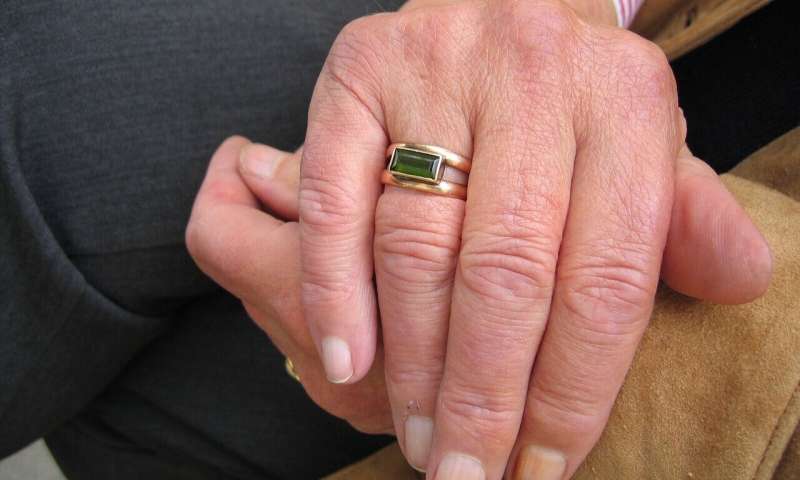
The largest study of care homes in the UK, led by experts at the University of Nottingham, has found that a co-ordinated approach to fall prevention in care homes is effective in significantly reducing the number of times residents fall.
The ‘Falls in Care Homes study’ (FinCH), led by Professor Pip Logan and experts from the School of Medicine, Center for Rehabilitation and Health Care Research, tested a new approach called the ‘Guide to Action to prevent Falls in Care Home’ (GtACH) program, which was designed by a collaborative group including care home staff, and families.
The study, published today in BMJ, was conducted across 84 care homes in 11 different areas of England and included over 1,600 residents over a three-year period.
The team found that the GtACH program reduced the rate of falls by over 43% compared with residents who did not receive the intervention. There was no adverse effect on residents’ mobility or independence and most importantly, the treatment was found to be cost effective and fell well within the cost-thresholds set by the National Institute for Health and Care Excellence for treatments to be funded through the NHS.
Falls are very common in older people living in care homes and are associated with a high risk of injury, admissions to hospital and significant cost to healthcare systems. Although fall prevention interventions have been shown to be effective in other settings, previous systematic reviews suggested that the benefits were uncertain in care home residents.
Experts at Nottingham developed the GtACH program in collaboration with care home staff and residents to devise a set of guidelines in the form of a 33 point checklist with a list of 33 associated actions that care home staff can use to reduce the risk of falls among their residents.
The program includes one hour of training for all care home staff (including gardeners, caretakers, cooks, cleaners, managers) in small groups, delivered by a falls specialist. A manual summarizing the GtACH program is left in the home after training and includes resources such as a falls incident chart (to detect patterns) and a medication falls risk chart. Once trained, staff are expected to use the GtACH risk assessment and guide to action checklist with all residents.
For example, the assessment might highlight that a resident is dehydrated and the recommended action is to increase fluids. The manual and training enable the care home staff to achieve this by taking action such as introducing smoothies, having more fruit juice on offer, providing appropriate crockery, making soups, and making an event of coffee time. Overall, the training and resources increase both awareness and knowledge about the management of falls.
Professor Pip Logan from the Center for Rehabilitation and Aging Research at the University was one of the lead authors of the study. She said: “‘The falls prevention program significantly reduces the chance of falling over for people living in care homes and is cost effective. This research is the largest care home study completed in the UK and the team included academics, care home residents, families, care home staff, social care and NHS employees, a truly interdisciplinary UK trial.
“By preventing falls, the FinCH program could improve quality of life and save lives, whilst also saving NHS and social care providers money, that can be reinvested into high quality care for older people.”
Victoria Rayner, CEO of the National Care Forum, said: “Preventing falls is one of the key priorities within all care homes. This research will support managers and staff to work with people receiving care and support to minimize the risk of falls, whilst continuing to prioritize activity and independence. The timing of this could not be better, as it coincides with the publication of the Government White Paper on Adult Social Care reform, People at the Heart of Care. The White Paper incorporates a strong focus on reducing falls, and this research will ensure that care providers can have immediate access to support this aim, using resources produced through research carried out in partnership with care home managers.”
Falls in care homes can be significantly reduced with intervention, says new study, BMJ (2021). DOI: 10.1136/bmj-2021-066991
Citation:
Falls in care homes can be significantly reduced with intervention (2021, December 7)
retrieved 7 December 2021
from https://medicalxpress.com/news/2021-12-falls-homes-significantly-intervention.html
This document is subject to copyright. Apart from any fair dealing for the purpose of private study or research, no
part may be reproduced without the written permission. The content is provided for information purposes only.





More Stories
How To Find A Custom Home Builder Without Losing Your Mind
5 Realistic Real Estate Considerations!
12 Critical Thoughts to Contemplate When Constructing a Dwelling Extension in Ireland